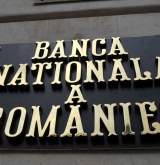Kenneth Orchard (photo) senior analyst in Moody's sovereign risk group told Wall-Street last week that Romanian economy was unlikely to emerge from recession until the second half of 2010, and a recovery would probably set in a year from now.
Yesterday, a Moody’s annual sovereign credit report on Romania showed the country was facing a deep recession that is expected to last into 2010 and despite that the nation’s economy is unlikely to return to its recent lofty growth rates in the near term, the long-term prospects remain good.
"Having entered the global economic crisis in a somewhat precarious financial position, the government was forced to agree a stabilization plan with the IMF and the EU in March 2009," said Kenneth Orchard, vice president senior analyst in Moody’s sovereign risk group.
He said Moody’s was not seriously concerned about the ongoing political noise in Romania.
"Moody's is not seriously concerned about the ongoing political noise in Romania, but there are still inherent risks in the deterioration in economic activity and asset quality in the banking system," said Orchard.
The report published earlier today by the rating agency says although the plan has not prevented a sharp drop in output or a serious worsening of the government's debt metrics, it has significantly reduced the country's external financing requirements and the risk of a balance of payments crisis.
"Moody's affirmed its Baa3 government bond ratings for Romania in March 2009, shortly before the IMF/EU program was announced," said Orchard. "The availability of official foreign financing has helped to stabilize the country's economy and ease re-financing pressure."
Even though the rating agency says the nation’s economy is unlikely to return to pre-crisis growth rates, the long-term prospects remain good.
"The primary reason that we anticipate higher growth is that Romania is significantly poorer than most EU countries, which means it has considerable potential for upward convergence," explains Orchard. "The combination of a reasonable business environment, EU membership, and improving physical and social infrastructure -- bolstered by EU funds -- should sustain superior investment rates over time, allowing a gradual rise in real income towards the EU average."
The rating agency pointed out that the IMF-EU program was accompanied by an important letter from all the major foreign banks operating in the country, affirming their long-term commitment and pledging support to their Romanian subsidiaries. Romania's Baa3 government bond ratings are supported by the country's moderate levels of economic and institutional strength and its EU membership.
How will the economy bounce back?
Moody’s says the economy will bounce back gradually, with long-term growth rates of 3-4%, weighed down by the heavy structural reforms and narrow infrastructure, as the economic contraction in 2009 may stay in the range of 7-10%.
Moody’s says a 3-4% annualized growth rate for Romania would be 2-3% above long-term growth estimates for the euro zone.
For this year, Moody’s expects Romanian economy to shrink by 7% - 10% before the 2010 recovery.
“In our view, Romania may experience a rapid recovery compared to other countries in the region, such as Bulgaria or Baltic states, due to its flexible exchange rate that enables the adjustment of trade balance, and relative small debt load of the private sector”, the report says.
On the other hand, “there are risks that recession may be more persistent, as it was preceded by a credit-driven economic boom and may cause severe economic disruption”.
“The production output must be oriented toward trade and services, which means that insolvencies among companies and jobless rate could continue rising. It remains to be seen how these aspects will interact with the fiscal consolidation policy, a fragile banking system and slow recovery of large European economies”, Moody’s stressed.
Citeste si:
Calculator Salariu: Afl─â c├ó╚Ťi bani prime╚Öti ├«n m├ón─â ├«n func╚Ťie de salariul brut ┬╗
Te-ar putea interesa și:


















































































![HR [PLAY] Tech Workout - 11...](https://www.wall-street.ro/image_thumbs/thumbs/973/973fe0a3888d417feff63de42e814180-260x260-00-65.jpg?v=1714075237)









